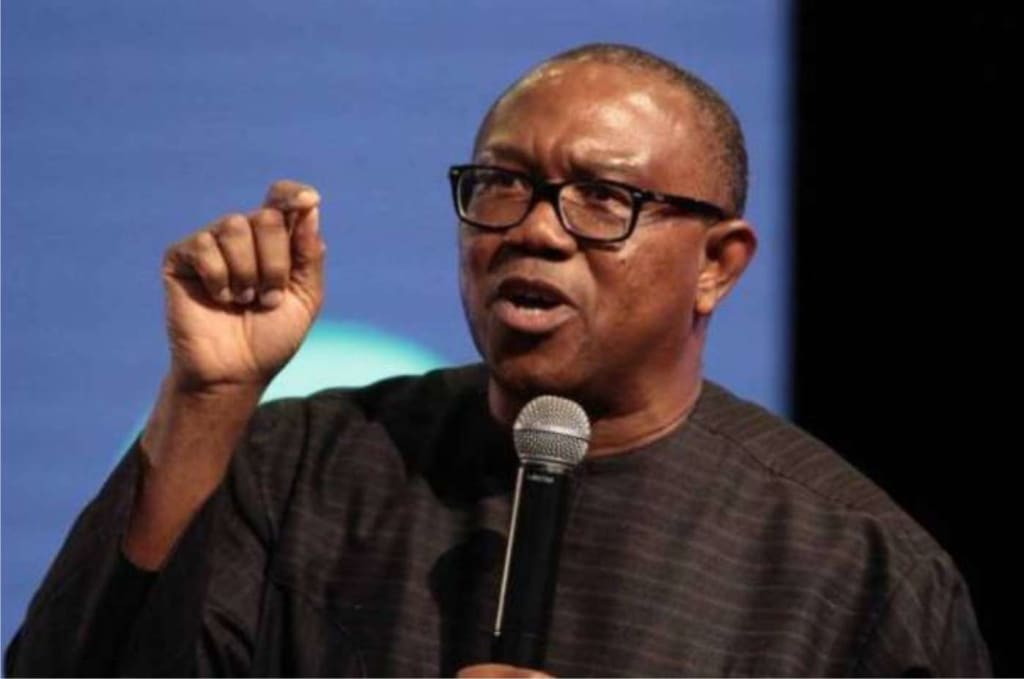Analyzing Peter Obi's Perspective on Nigeria's Fuel Subsidy
Fuel Subsidy ''An Organized Crime''

Introduction
Nigeria's fuel subsidy has long been a contentious issue, attracting the attention of politicians, economists, and citizens alike. One prominent figure who has engaged in the discussion is Peter Obi, a former governor of Anambra State and a respected voice in Nigerian politics. Obi has offered his perspective on the fuel subsidy, highlighting its drawbacks and proposing alternative solutions. In this article, we delve into Obi's views on Nigeria's fuel subsidy, analyzing his arguments and critically examining the potential implications of his proposed alternatives.
Background on Nigeria's Fuel Subsidy
Nigeria, as a major oil-producing nation, heavily subsidizes the cost of fuel for its citizens. The government subsidizes the price of petrol to ensure it remains affordable for the general population. However, the fuel subsidy program has been plagued by corruption, inefficiency, and the mismanagement of resources. Critics argue that the subsidy has become a drain on the country's finances, leading to increased debt and diverting funds that could be invested in critical sectors such as healthcare and education.
Peter Obi's Perspective
Peter Obi has consistently highlighted the inherent flaws of Nigeria's fuel subsidy system. He argues that the subsidy has disproportionately benefitted the affluent, while the masses continue to suffer from inadequate infrastructure and social services. Obi contends that the subsidy disproportionately benefits the elites who own large fleets of vehicles and generate substantial profits from the subsidy, rather than reaching the intended beneficiaries—the low-income earners.
Furthermore, Obi raises concerns about the economic implications of the subsidy. He argues that the fuel subsidy encourages wasteful consumption, leading to increased demand for petroleum products, and in turn, places a strain on Nigeria's already fragile economy. According to Obi, the funds allocated to the subsidy could be better utilized in infrastructural development, healthcare, and education, thereby providing tangible benefits to the entire nation.
Proposed Alternatives
In place of the current fuel subsidy system, Peter Obi proposes several alternative solutions. Firstly, he advocates for a comprehensive review of the subsidy program, aiming to eliminate corruption and ensure that the subsidy benefits those truly in need. This would involve a transparent mechanism to identify and target the most vulnerable sections of society, such as low-income earners and small-scale business owners.
Obi also emphasizes the need to diversify Nigeria's economy away from its dependence on oil. He suggests investing the funds saved from the subsidy reform into sectors such as agriculture, manufacturing, and renewable energy. By diversifying the economy, Nigeria can create employment opportunities, reduce its reliance on oil revenues, and promote sustainable economic growth.
Moreover, Obi proposes the implementation of policies that promote fuel efficiency and encourage the use of alternative energy sources. This includes incentivizing the adoption of electric vehicles, investing in renewable energy infrastructure, and promoting energy conservation practices.
Critical Examination and Conclusion
While Peter Obi's perspective on Nigeria's fuel subsidy highlights some valid concerns, his proposed alternatives require careful scrutiny. The success of any alternative system depends on the government's ability to effectively implement and manage it, addressing the rampant corruption and inefficiency that have plagued previous initiatives. Additionally, the transition away from oil dependency and the promotion of alternative energy sources will require significant investments, policy reforms, and public awareness campaigns.
Nevertheless, the discourse initiated by Peter Obi is a crucial step in addressing the challenges posed by Nigeria's fuel subsidy. It serves as a reminder that a comprehensive review of the subsidy program is necessary to ensure its effectiveness and equitable distribution. Ultimately, the path forward lies in adopting a multifaceted approach that tackles corruption, promotes economic diversification, and embraces sustainable energy solutions, while prioritizing the needs





Comments
There are no comments for this story
Be the first to respond and start the conversation.